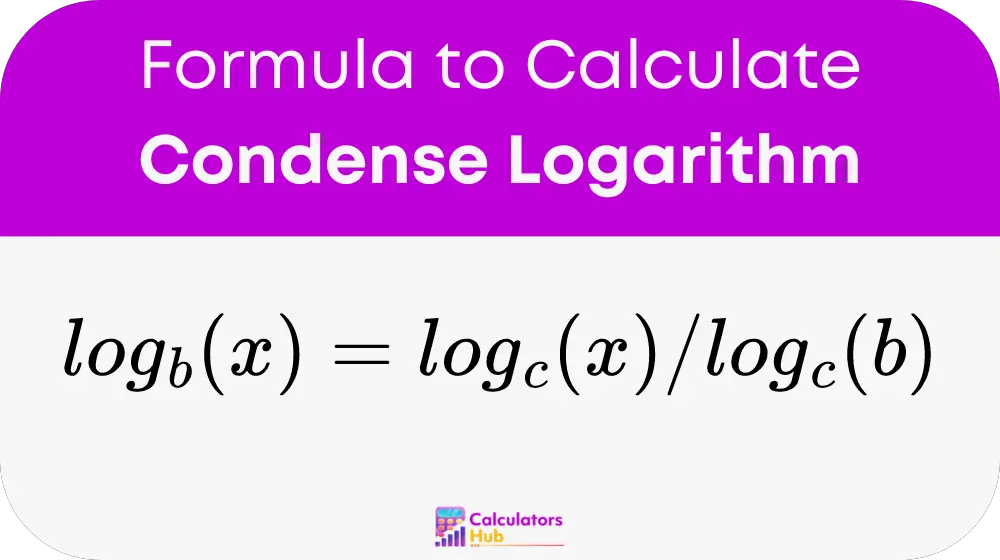A Condense Logarithm Calculator is an essential tool in mathematics, particularly useful for students and professionals who frequently work with logarithmic calculations. This calculator simplifies the process of finding the logarithm of a number with respect to any base, making complex calculations accessible and quick.
Formula of Condense Logarithm Calculator
The core functionality of the Condense Logarithm Calculator is based on a straightforward mathematical principle known as the change of base formula. Here’s the formula it uses:

Where b is the base you want to convert to, x is the number you are taking the logarithm of, and c is any positive number. Common choices for c are 10 (for common logarithms) or e (for natural logarithms). This formula allows for flexibility in logarithmic calculations, accommodating any base.
Useful Conversion Table
To further aid in understanding and convenience, below is a table featuring common logarithmic conversions that might typically require a calculator:
| Number (x) | Base 10 Logarithm (log_10(x)) | Natural Logarithm (log_e(x)) |
|---|---|---|
| 1 | 0 | 0 |
| 10 | 1 | 2.302 |
| 100 | 2 | 4.605 |
| 1000 | 3 | 6.908 |
This table serves as a quick reference for common values, helping users understand logarithmic scales without manual calculation.
Examples of Condense Logarithm Calculator
Let’s demonstrate the utility of the Condense Logarithm Calculator with a couple of examples:
- Example 1: Calculate log_2(8) using the calculator.
- Using the formula: log_2(8) = log_10(8) / log_10(2) ≈ 0.903 / 0.301 ≈ 3.
- Example 2: Determine log_5(125) with the calculator.
- Applying the formula: log_5(125) = log_e(125) / log_e(5) ≈ 4.828 / 1.609 ≈ 3.
These examples illustrate how the calculator can be used for quick and accurate logarithmic calculations.
Most Common FAQs
A logarithm answers the question: to what exponent must the base be raise, to produce a given number?
Different bases are use for different applications: base 10 is common in scientific calculations, while base e is used in natural growth processes and complex mathematics.
The change of base formula allows the conversion of logarithms from one base to another, making calculations flexible across different bases.
Absolutely. The Condense Logarithm Calculator is design to handle a range of mathematical tasks, from simple to complex.